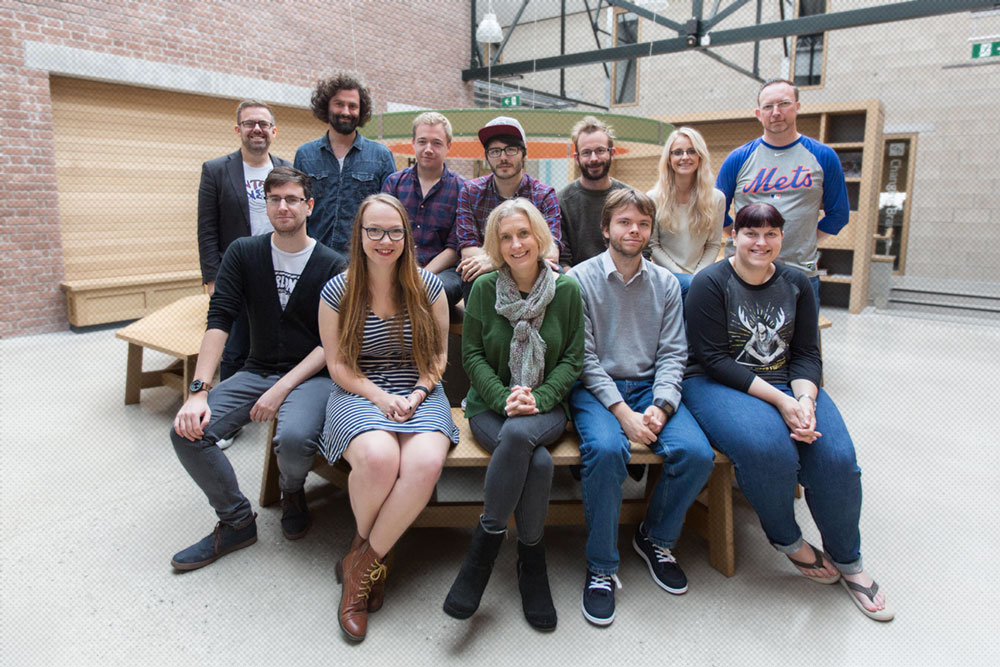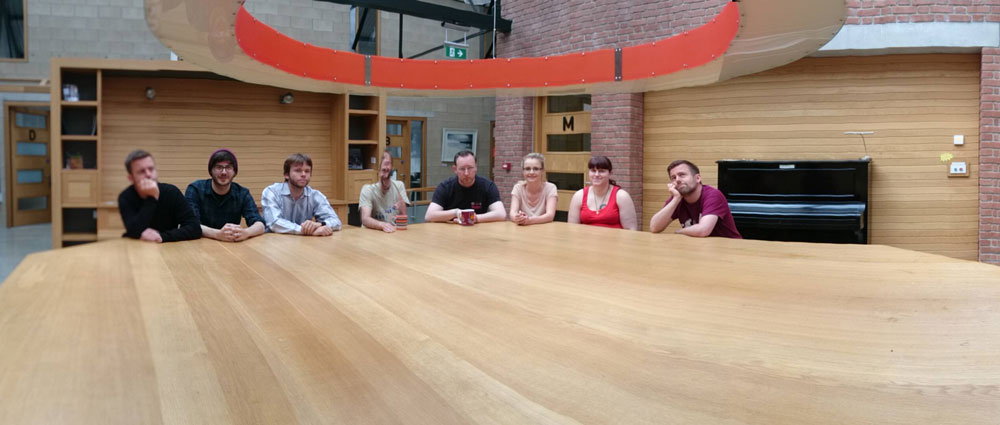If you’re thinking of applying for one of our two copywriting roles, there’s something I’d like to tell you. It might help you get the job. Or at least work out if you want it.
(And if you’re a current or potential client, here’s how we choose the people who – after a prolonged training montage, of course – might one day have a hand in your copy.)
At some point on Monday 11th July, when we’re knee-deep in job applications, a bell will sound. We’ll gaffer-tape the postbox shut, and the painful exhilarating process of shortlisting will commence.
As creative director, I’ll be asked for my view on who we interview, and who we don’t. And that’s a hell of a thing – not just for you, but for us too.
Here at Radix, we stand or fall by the quality of our writing. In a market where someone will always be cheaper, we’ve ended up as (what we think is) the biggest copywriting agency in the B2B tech sector by aiming to be better. So when we hire two new copywriters, finding exactly the right people is important.
And it’s not easy.
For one thing, there’ll be a metric shedload of applications. Full-time copywriting roles are rare – but at a dedicated copywriting agency, surrounded by other writing geeks? Including a junior role that doesn’t specify experience? By the seaside? That’s pretty exceptional*.
Meanwhile, everyone thinks they can write. So first we have to find the people who really can handle a sentence without hurting themselves. And then we have to zero in on the ones who have the potential to be, well, brilliant.
I can’t speak for my colleagues, of course. They might be looking for something else entirely (and this doesn’t replace all those essential/desirable requirements, obviously)… But when that mound of paper reaches my desk, here’s what I’ll be looking for.
1. A really kickass covering letter.
Some people like CVs, but I’m all about the letter.
It’s no accident that we’re not asking to see writing portfolios until the interview stage. If your letter’s not compelling enough to get you shortlisted, you’re probably not the person we’re looking for. Our clients’ copy has to compete among a thousand distractions, and get a result – so yours will too. Take that page, and make me want to interview you. Make me care.
How you do that is up to you; you’re the writer. But I can give you some hints.
First, be appropriate. Yes, you need to hold my attention, but if you’re wild and wacky you can make yourself look desperate or, worse, annoying. Remember, we write for big, business-to-business organisations… and while we need to give them personality, character and even a bit of swagger, we’re not aiming for silly.
Second, be focused. Think about what I want to know, rather than what you want to tell me. Give me enough to keep me interested, but don’t bore me. Get to the point, and do it with style.
And finally: for anything we write, we have a specific outcome in mind. B2B copy moves the reader one – or at most two – steps along a buying process; it doesn’t go from “who the hell are you?” to “TAKE MY MONEY” in one piece. At least, not often. Likewise, your letter doesn’t need to get you the job. It needs to get you on the shortlist.
(The CV needs to be good too, of course. Make it relevant and structure it in a way that makes it obvious why we should see you. Thanks.)
2. A natural style.
That first point was almost unfair, wasn’t it? Because now I’ve put the pressure on, you’ll be writing your letter, knowing it’s your one shot at showing me what a great writer you are. So the temptation will be to break out all your skills, and show off a little bit.
Don’t.
Virtuosity is all very well. But it’s nothing without taste.
Not to put too fine a point on it, we’re writers too. We know all your long words, and they don’t impress us much.
So instead, put your effort into something we will appreciate: really polishing your prose – making sure everything is drum-tight, and the sentences glide off the page as we’re reading them. Make it feel natural, and sieve out the clunky bits. Hold our attention, but do it quietly.
Believe me, we will notice.
3. An understanding of what makes business people tick.
A copywriter who only thinks about words is like an architect who only thinks about bricks.
Ultimately, we’re conveying a message, and trying to incite people to take action. So you’ll spend at least as much time thinking about what keeps CIOs awake at night as you will pondering whether that’s a comma or a semi-colon (a word to the wise – it might be an en-dash).
That doesn’t mean you need a business qualification, but it does mean you need to think about how and why people make decisions at work. Being able to picture people you know in equivalent roles, situations and organisations might help.
(I still maintain that my four years in sales have had a stronger influence on my copywriting than anything in the fourteen years since.)
A hint: if you don’t have experience in this area, don’t panic. The thing many writers forget about B2B buyers is that they are, first and foremost, human beings. If you have a good understanding of those, we have something to work with.
4. A willingness to geek out.
By any conventional standard, this is not the most glamorous copywriting job in the world. But making hotels sound relaxing and food seem sumptuous is the sort of stuff any decent writer can do. We have a greater challenge: we take virtual servers, and forklift trucks, and BYOD mobility, and automotive networks testing, and air conditioning maintenance… and we make them fascinating.
Except, we don’t.
Rather, we care, and we learn, and we research, and we ask loads of questions. We empathise with the buyers and users and imagine likely scenarios… until we discover why these things were already life-and-death compelling to their target market. Then we tell that story.
That takes a special kind of curiosity. A willingness to look beyond the obvious. To get enthusiastic about something really, really niche. It’s no coincidence that our ranks include a D&D enthusiast, a leading nerd podcaster, a songwriter, a Magic: The Gathering champion, and a black belt in Tang Soo Do (no, us neither). Our writers are, to put it nicely, not normal.
Without that, you can’t do this job (and that’s OK, because you wouldn’t have enjoyed it anyway).
So, there’s your challenge. If, after reading all this, you’re excited about either the copywriter or junior copywriter job, get a move on. You have until Monday, 11th July and I’m looking forward to reading your letter.
* Disclaimer: I’m still kind of new here, so I don’t mean to boast – I’m simply calling it how I see it. And I can say, quite honestly, there aren’t many businesses in the world that could have tempted me to put my Lungfish brand aside. This is a brilliant place to work.


